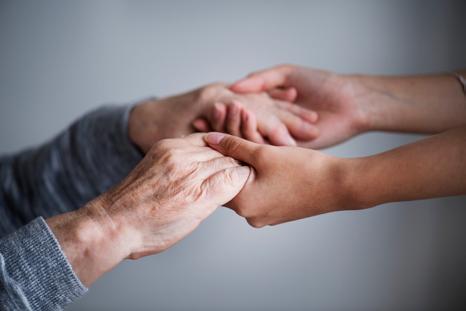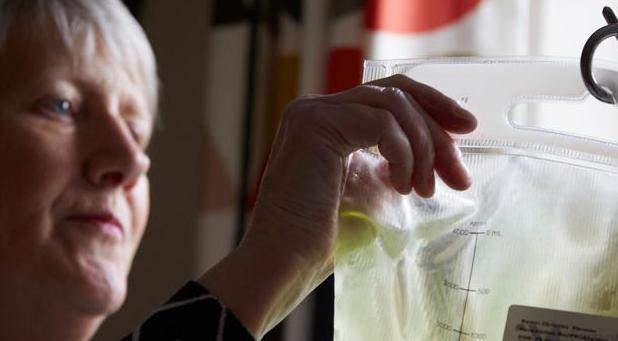












Since January 2020, the COVID19 pandemic has tested the world’s economy and the endurance and resilience of the social, industry, travel, trade, and health sectors. In parallel, global warming and other climate changes are having a lasting negative effect on people’s ability to manage their health and protect themselves from external factors impairing their mental and physical condition.
Healthcare systems are under pressure and inequities of access still exist for medical nutrition worldwide and within the European Union.
These challenges have forced decision-makers to implement policies and actions in emergency situations. Sometimes these interventions have been coordinated and evidence-based, but more often they have been experimental owing to limitations in the available knowledge base and tools.
Now, global health is facing yet another challenge with Russia invading Ukraine and other former Soviet Union states initiating belligerent operations toward their neighbours. These actions have started to interrupt trade and supply of essential goods, including gas, electricity, and raw materials essential for the production of nutritional products.
Medical Nutrition Industry International (MNI) has worked to find appropriate actions and responses to address the challenges brought by the pandemic, climate change and a war on its doorstep, and in addition has faced a leadership change and administrative issues in the past year.
This five-year strategy aims to help MNI adapt to these challenges and to continue bringing the medical nutrition industry together. Specifically, it will support the organisation to:
• define MNI’s priorities taking into consideration the global context
• focus on key challenges and offer concrete workstreams to provide solutions to these
• achieve the vision and mission of MNI in an ethical and compliant manner.
• monitor and influence the European legal and policy environment impacting the sector
• share with the public at large MNI’s commitment towards improving healthcare and patients’ access to medical nutrition via concrete actions
Medical nutrition can improve patient outcomes, independence and quality of life, and add value to healthcare systems facing unprecedented challenges. MNI member companies produce high quality products and have a unique expertise related to the value that these products bring to individuals and societies. The MNI unites this expertise and disseminates it through its networks to enable these products to be used efficiently and effectively.
MNI must now ‘gear up’ to contribute its know-how in the most effective way. In a world saturated with information, networking and exchanging knowledge and best practices are more important than ever. MNI members are eager to work together to find common positions and solutions that will benefit both the patients and the sector, through sharing expertise, experience and solutions.
They also operate in a regulatory framework that has changed quickly over the last few years and which signals a stronger interest in public health, be it through the very ambitious programme of “EU4health”, the EU Cancer Mission1 , the revision of Codex or the growing interest of the World Health Organization (WHO) in disease-related malnutrition. MNI must seize this opportunity to position medical nutrition more prominently in broad healthcare and health service debates and decisions, to ensure that medical nutrition is prioritised appropriately. As medical nutrition remains under-acknowledged, under-used and under-valued, MNI must build on its past successes and existing partnerships, and leverage new initiatives, to help shape the financial and regulatory environment, boost awareness of medical nutrition, and drive its use and value among ‘nonconverted’ parties to meet the needs of patients in sustainable ways.
MNI must also take into consideration the reality of care, and indeed the absence of care, in an ever- evolving society where a strong focus is put on community care. How can MNI take part in reshaping healthcare systems to benefit patients? The increasing importance of data and technology offer opportunities for MNI to prove its contribution to the advancement of innovations that improve patient care and outcomes.
MNI’s adoption of its Code of Conduct and more stringent rules on compliance are also important to allow more standardised decision-making processes, improve equity, and enable a balanced and transparent assessment of its own activities and those it supports.

1 The EU missions : https://research-and-innovation.ec.europa.eu/funding/funding-opportunities/funding-programmesand-open-calls/horizon-europe/eu-missions-horizon-europe/cancer_en

MNI is the only not-for-profit international organisation gathering leading companies in oral nutritional supplements, enteral and parenteral nutrition, offering a vast panel of solutions to patients worldwide, through cost-effective, efficient, and evidence-based treatments. Together, MNI members help patients of all ages to address nutritional insufficiencies arising from a disease, disorder or medical condition, when they are unable to meet their requirements via usual dietary intake.
As an expert in its field, MNI is a key contributor and advocate for shaping policies that allow patients to access appropriate nutritional care.
The Five-Year MNI Strategy will outline the specific and measurable goals, with a clear focus on the mediumterm, drawing lessons from the past successes and failures, and recognising the time necessary to achieve progress in the EU-level health, communication and advocacy sectors owing to the EU political cycle.
The purpose of this strategy is two-fold:
• To define the purpose of MNI, its values and internal processes
• To provide a clear blueprint on MNI’s strategic direction and aspirations over the next five years
The MNI Strategy will reinforce a communication, advocacy and project engagement strategy in order to clearly inform (both internally and externally) its priorities and overall sense of direction in a transparent manner. It will streamline MNI’s present and future activities according to its key overarching priorities.
The MNI Strategy leaves room for adaption to unplanned initiatives and for MNI to remain nimble and able to adjust to unexpected circumstances that may arise. It will be reviewed and realigned in accordance with internal and external developments during the next five years.
A work plan will be prepared on an annual basis in order to operationalise the strategy.

On average 1 in 4 patients admitted to hospital suffer from DRM.2
In the EU alone, disease-related malnutrition is estimated to cost governments €170 billion annually3 Additionally, evidence shows that good nutritional management dramatically improves outcomes and prolongs healthier lives.
Diagnosis and treatment of DRM are long and often inaccurate processes.
Basic disease-related nutritional care is routinely poor and may worsen: only a limited number of malnourished people receive the basic elements of nutrition management and most DRM- related deaths are preventable with good basic care, yet European healthcare systems are under increased pressure with stretched resources.
Access to effective treatments is restricted by funding limitations, in particular the absence of reimbursement of medical nutrition by some national or regional health systems.
There is still complacency or confusion about DRM among the public and policymakers: many confuse malnutrition and DRM with obesity or poor diets and see it as a less serious problem to solve than other conditions.
Public awareness and self-detection of DRM is one of the biggest challenges: people with DRM often do not seek the help they need.
2 Stratton R, et al. Disease-related malnutrition: an evidence-based approach to treatment. Wallingford: CABI Publishing, 2003
MNI’s vision and mission and values are enshrined in MNI’s Statutes. As part of the consultation process, MNI members expressed their wish to retain these unchanged as they still match the raison d’être of MNI. Core values are new and were adopted by members at an Executive Committee meeting in April 2022.
MNI above all aims for a world where medical nutrition is an integrated part of the treatment across the continuum of care, where parenteral, or/and enteral and oral nutrition are key elements in the patient’s recovery from hospital to homecare.
MNI’s vision is to achieve better care through better nutrition, across all ages and healthcare settings.
Our mission is to support the quality of nutritional interventions and services to best serve the interests of patients, healthcare professionals and healthcare providers.
We strive to put nutrition at the heart of patient care. We aim to create an environment that provides fair access to medical nutrition products and which supports the nutritional needs of patients throughout the world.
MNI’s core values are forged by its commitment to the highest ethical standards and they drive its priorities, commitments and organisational decisions. MNI’s reputation is the ultimate asset, and these core values guide its behaviour, judgments and how it accomplishes its mission:
Integrity
MNI assures and maintains transparency in its relationships with its various constituencies.
Inclusiveness
MNI operates in a spirit of inclusiveness by providing opportunities and forums for its many stakeholders to be represented and heard across activities throughout the association.
MNI’s ultimate aim is to serve the patients and their caregivers to help them maintain/improve their quality of life as much as possible. MNI seeks to understand, learn from, and meet the needs of individuals with malnutrition, as well as their families and caregivers.
MNI keeps its commitments to its members and the wider health community as a trustworthy partner and makes measurable progress to achieve its mission.
MNI’s activities focus on exchanging best practices and expertise and fostering knowledge and innovation through partnerships and joint initiatives to ultimately obtain DRM-friendly policymaking and health systems in order to strengthen patient access.
MNI’s work comprises a range of activities from developing position papers and scientific guidelines to supporting awareness raising campaigns and encouraging education on DRM, including through congresses and conferences. It supports policymaking by nurturing relationships, shaping and changing narratives, and providing thought-leadership to engender change together with members and partners. MNI performs its activities with the support of members experts, ad hoc task forces, expertise from its Secretariat, and through the leadership of its Executive Committee.
This strategy does not propose a radical change, but rather adapts MNI’s activities to a changing external environment in which speed and flexibility reign. Therefore, the description of how MNI works has been updated to reflect the more versatile nature of its work in the 2023-2027 period and its greater commitment to its extended network as a prime resource:
• MNI will actively participate in policy debates and dialogues to advocate for policy change to protect and improve healthcare in the field of medical nutrition and offer better patient access
• MNI will apply its values to all of its positions and actions.
The primary audiences for MNI’s messages are:
• policy and decision-makers from the EU institutions, including politicians (European Commissioners, Members of the European Parliament, national government representatives and authorities), EU officials and national delegates, plus opinion-formers from civil society, relevant stakeholders and the media – as advocacy will focus at the EU level
• healthcare professionals (HCPs) through their professional organisations and societies), e.g. clinicians, dietitians (care pathways), physicians and other key HCPs in specialist areas (oncology, geriatrics and surgery)
• patients and carers including relevant advocacy groups
• payers and healthcare settings’ admnistrators
In the future, MNI could promote and facilitate knowledge in DRM for the wider public health community by offering capacity-building opportunities and support for cooperation and partnership, particularly to those working with older patients and and/or those suffering from a chronic non- communicable disease.
MNI works cooperatively and constructively with civil society platforms and like-minded organisations to advocate more effectively for the recognition of DRM and to achieve better care through better medical nutrition.
Geographic coverage: MNI is centring its activities and undertakings at European level, ensuring that projects and actions have a positive impact across the region. It will however give due consideration to international projects where its input and participation would be of added value. Input may be provided at local or national level in order to contribute to a wider approach and benefit, and without the direct support or implication of MNI Secretariat: MNI’s projects and activities may also be implemented, or contribute to advancement of the field at national level, especially through National Industry Groups (NIGs).
MNI highly values its partners4 , and promotes their work through collaboration, fruitful interactions, funding, communication and dissemination.
MNI operates in full cooperation with, and support to, other European organisations focusing either on disease-specific issues, or representing patient groups, specific age groups, or activities/professions in relation to medical nutrition.
Depending on the internal settings and governance of the other parties, and on MNI’s interests, MNI may take part in the projects developed by external parties, or financially support their projects without participating, if they are in line with MNI’s objectives and priorities.
MNI will specifically engage in the next five years with organisations representing:
cancer stakeholders
patients
general and specialist nurses
carers
nutritionists and dietitians
general practitioners
geriatricians
gastroenterologists
other specialise doctors, e.g intensivists or oncologists
pharmacists: community, clinical and hospital
hospital and community sectors organisations
4 Namely like-minded EU health associations, such as ESPEN, ENHA, EuGMS, EFAD or
policymakers and politicians influencing the practice of medical nutrition
Members of MNI are medical nutrition manufacturers and companies, or collective organisations operating in the field of medical nutrition products and services and leadership, as per Article Five (5) of the MNI Statutes. There are two categories of members: full and associate. In the coming five years, MNI will review the membership-criteria for the two categories and assess whether organisations with other profiles than that described above may join.
Improved organisational management, including internal communication, adherence to governance protocols, and human resources/skills development, will be a key focus in the coming five years. To this end the MNI Internal Rules will also be assessed and adapted to present needs and priorities.
MNI will improve its external communication as it currently is not achieving the set targets and is failing to foster sufficient awareness of MNI’s actions, mission and vision among target stakeholders. MNI will promote its projects and initiatives to ensure full transparency on its agenda, work and objectives, through inter alia, posting key documents on its website, proactively sharing it with key stakeholders and on social media.
A communication plan will accompany all annual work programmes.
MNI will strive to improve the:
• Quality of communication, taking into account the specificities of the recipients, using innovative tools and refining the style used; this will also serve the purpose of developing MNI’s advocacy.
• Quantity of messages, ensuring that all undertakings are adequately reported, promoted and shared via the right channels and to the right people, when it serves their purposes.
The media support and narrative will be used to address patients and patients’ groups, in particular on the importance of medical nutrition, in an accessible language – as far as possible in collaboration with non-industry partners to ensure message acceptance and though larger public campaigns.

Modern tools to share information, such as mobile applications, will be further explored and on-line tools will be better exploited: there will be increase in social media communications and an upgrade of the MNI website as soon as possible.
Communication will be streamlined across all of activities (see tables below) and we will consider developing a repository of essential information and data to be easily accessible to MNI members.
Finally, MNI will reinstate regular communication about its activities, agenda, progress made and future projects both internally and externally.
This reinforced focus on communication will entail increase in resources dedicated to this activity.
MNI delivers on its mission of securing a safe and sustainable supply of high-quality nutritional care to patients suffering from DRM through three strategic priorities, with advocacy, legal and communications as cross-cutting activities. All work will be accompanied by a communication strategy (see figure 1)
Advocacy & Legal
Strategic priority 1
Awareness : raising the importance of MN in the care pathway
Strategic priority 2
Access: safeguarding and enhancing patient access to MN in the European Union
Communication
Strategic priority 3
Use of MN: ensuring the proper (clinical) use of MN
Medical nutrition (MN) improves patient outcomes and nutritional interventions result in better health outcomes. It leads to fewer complications and decreases the use of healthcare resources for European healthcare systems. MNI will raise awareness on the importance of MN in the care pathway, focussing on key EU initiatives.
MNI, together with its partners, informs and educates people about medical nutrition, so that nutritional care is a prerequisite for proper treatment. MNI seeks to mobilise the power of patients, politicians and healthcare professionals’ opinions in support of MN through:
Ensuring that nutritional care is a key component of the patient pathway to recovery in specific diseases through recommendations, policy papers, EU legislation, guidelines, position papers and meetings where care and health systems are assessed and improved
Communication campaigns, conferences, congresses and other public events, publications, working with the media and dispensing awards
Raising awareness among policymakers and key third-party stakeholders around the necessity and value of MN, including via educational webinars and information sessions
MNI promotes equal access to medical products. All EU citizens have equal rights to care/treatment; MNI supports this by striving for self-sufficiency of nutritional care in Europe and beyond. This entails the availability and accessibility of products to all patients who need them in Europe, through availability of the products, reimbursement, and the demonstration of “value for money”.
MNI aims for a stable and balanced framework for reimbursement of medical nutrition and market access policies that ensure patients get timely access to the MN products they need, whilst safeguarding the sustainability of our healthcare systems.
Therefore, MNI will ensure that decision-makers and payers are aware of the importance of access to MN. MNI will highlight its value both for the patients and in relation to health systems sustainability and resilience:
• Patients: getting the right nutritional care in a timely manner is a human right – patients’ MN needs should always be assessed to help reduce medical complications and support recovery. MNI will advocate for safe, adequate, monitored and affordable nutritional care access for all patients who need it throughout the patient care pathway from hospital to home care. This includes the right diagnosis (systematic screening for malnutrition risk on admission/start of treatment for any co-morbidity to allow timely malnutrition diagnosis) and right treatment (based on the latest evidence-base guidelines and recommendations).
• Economic value: MNI will ensure that decision-makers and HCPs take into account the substantial financial costs of DRM and their avoidance through proper MN; hospital- acquired conditions, readmissions, and prolonged lengths of stay are costly and a burden on health systems that could be avoided with proper management and treatment.
• MNI will highlight the importance of ensuring equitable access to MN for all, irrespective of the patients’ locations or social situation: MNI will support initiatives towards better reimbursement policies favouring the uptake of the treatments (thanks to their affordability) throughout Europe.
MNI will be involving patient and medical (hospital) organisations: patients’ care and wellbeing are the ultimate goal of all MNI members’ operations. MNI maintains ongoing relations with patient and hospital organisations to ensure that their needs are understood and taken into account. MNI will help its members in navigating this constantly evolving environment through advocacy and legal support.
MNI is focused on promoting evidence-based medicine and the latest scientific developments, together with their implementation, via specialist HCPs – thereby ensuring the proper use of MN.
This involves the following aspects:
• training and education of HCPs, to ensure that MN is part of their curriculum and professional expertise
• promoting and assessing patients’ adherence to MN throughout their care
• promoting and assessing patients’ adherence to MN throughout their care
• promoting the development of multi-disciplinary teams, including dietitians and nutritionists
• supporting research and scientific societies
MN is regulated at EU level through specific legislation on Food for Special Medical Purposes (FSMPs) for oral products and pharmaceutical rules for parenteral products. EU regulations on medical devices and in-vitro devices also impact MNI members, although members have not given MNI a mandate to closely follow this dossier. MNI will closely monitor potential changes in the EU legislation affecting the sector to:
MNI members provide nutritional products of high quality and endeavour collectively to ensure the sustainable supply of medical nutrition products in all situations through business continuity. To this end, MNI will ensure (in cooperation with similar organisations) that the regulatory framework for all matters related to medical nutrition is fit for purpose and that regulations at the EU and global levels reflect the latest developments in the field.
To this end, MNI will strive to participate to the European Commission’s undertakings and positions developed and expressed via its Directorate General (DG) Health Emergency Preparedness and Response Authority (HERA), which anticipates threats and potential health crises, through intelligence gathering and building the necessary response capacities. The goal will be to ensure that MN is part of contingency planning and crisis preparedness, and that pan-European solutions are put forward to the benefits of all patients in the EU.
In addition, MNI will advocate for the inclusion of MN in decisions related to the Regulation on the European Health Data Space, in particular through its aim to supports the use of health data for better healthcare delivery, better research, innovation and policy-making.
Nutritional care is a key component of the patients’ care pathway through advocacy
Improve visibility of MN
1. EU decision-makers
2. HCPs
3. Payers
4. Patient groups
5. Social workers
6. Informal carers
1. MNI to share scientific evidence/ opinions/suggestions on
• disease specific, e.g. cancer, cardiovascular disease, respiratory disease
• age-group specific
2. MNI to participate to debates on non-communicable diseases, highlighting importance or secondary and tertiary prevention, including with EC, European Parliament, OECD
3. MNI to demonstrate the importance of MN through data on incidence/ prevalence, outcomes on MN intervention, importance of early diagnosis and care
4. MNI to support EU patients’ groups projects with a focus on MN and their related aim
5. MNI to pursue its work on the EU Beating Cancer Plan
6. MNI to support/co-sign position statements; help disseminate medical guidelines demonstrating importance of MN
7. Communication and dissemination plans for all of the above
1. Position papers
2. Amendments to legislation
3. Active participation to events/meetings
4. 1-to-1 meetings with EU decisionmakers
5. Sponsored events
Increased knowledge of importance of MN
Increased participation of MN specialists in EU health policy adoption process
MN is part of the standard care pathway for patients who need it
0.2 FTE Project leader in MNI membership
External agencies per project
Health economics
1. EU decision-makers
2. Payers
3. HCPs
4. Patients
1. Continue and complete project on demonstrating economic value of medical nutrition in oncology (HEOR model)
2. Replicate HEOR model for another disease/category, e.g. mental health, CVDs, GIs disease
3. Develop/update existing MNI fact sheets/information on reimbursement as a means to allow fair and equitable access to treatment
4. Develop a set of standard indicators needed to assess the economic impact of medical intervention in DRM
5. Mapping the reimbursement status of 3 to 4 leading FSMPs in each EU countries to demonstrate inequal access
6. Communicate and disseminate all the above
Demonstrating the economic value of home nutritional care (including home enteral and parenteral nutrition)
1. Public health administrators
2. Hospital managers / payers
1. Study values of HPN vs. hospital care to demonstrate economic impact
1. Position paper demonstrating economic value. Published in one scientific journal
2. Health economic model for new disease/sets of disease by 2027
3. Position paper on value for money on MN intervention
4. Indicators and fact sheets
Increased knowledge of decision makers and payers on cost of (absence) of MN and impact
FSMPs further reimbursed
Patients have improved access to MN
0.5 FTE Project leader in MNI membership
External agencies per project
1. Report
2. Factsheets
3. General practitioners
4. Geriatricians
5. Gastroenterologists
6. Dietitians
7. Carers (formal and informal)
1. Policy maker
2. Administrators
3. Payers
2. Develop information material on the safety of medical nutrition used at home (HPN, enteral tube feeding)
3. Position statements
4. Update HPN website
Stakeholders are informed and aware of the safety and feasibility of using PN and tube feeding in the community (outside the hospital or ambulatory practice)
0.1 FTE Project leader
External agencies for study and comms MN value in all settings
1. Update the MNI medical nutrition dossier’s data and widening the scope to all healthcare settings
2. Using the Covid-19 experience and data as basis, highlight the benefits of medical nutrition to build resilient healthcare systems
5. Leaflet in multiple languages
Updated and modern version of the MNI Medical nutrition dossier
Fact sheet(s) on economic value of MN intervention – in lay vocabulary for the public at large
Decision-makers will be informed on the importance of nutritional care outside of the hospital and will put measures in place to address this need
0.1 FTE Project leader + external agencies
Educational programmes
1. HCPs: internists, surgeons, intensivists, oncologists, ICU specialists, pulmonologists, nurses, occupational therapists,
2. Social workers and informal carers
3. General practitioners
4. Patients
1. Support the development of medical training programmes – beyond the NEMS project funded in the past with ESPEN – by pan- European medical societies
2. Partners with key academic leaders at EU level to assess and implement strategies to ensure MN is part of medical curricula
3. Training, workshops or summer schools with informal carers so that they acquire health literacy and expertise to be armed to make the right choices for their sick relatives
4. Communication and dissemination plans for all of the above
Education in MN is part of the medical curriculum by 2032 in 10 countries
Education in MN is part of social and occupational therapists training by 2032 in 5 countries
Informal carers will be informed and able better support their ill relative
Booklet for GPs and Leaflet for patients and carers
MN is not only a speciality but part of the HCPs general expertise to treat a patient holistically
Patients will spend less time under care and supervision, which will alleviate the healthcare costs
Health outcomes will be improved quicker and with less impact on the budgets
The doctors and the patients and their families/carers are aware that medical nutrition could be of huge help to aim at an optimal nutritional status against DRM
Screening and earlier diagnosis
1. HCPs: GPs, Geriatricians; dietitians, specialist nurses; gastro- oncologists; physicians in hospitals
2. Patient groups
3. Social workers
4. informal carers
1. Collecting economic, social, HC related data and building evidence for action with it
2. Position statements; supporting medical guidelines; white papers
3. Supporting screening (e.g. cancer) programmes, through funding and cosigning position statements
4. Support development of guidelines on screening, including key indicators
5. Support to online courses/training
6. Participating to EU consultations on early diagnosis and screening
7. Partnering with patients, HCP and carers to promote screening
1. Indicators on screening for DRM
2. Promotional material on these indicators and importance of screening
3. Screening for malnutrition is part of the EU Beating Cancer Plan implementation
4. Training and information material in at least 5 other languages than English
Screening for risks of malnutrition is common practice in at least 3 specific conditions/setting by 2030 – e.g.: for cancer patients; for elderly admitted in care centres;
0.2 FTE Project leader in MNI membership
External agencies per project
MN adherence and assessment
1. HCPs
2. Patients
3. Academics
Promote patient adherence to treatment and assessment throughout the care of adequacy of the treatment
Study MN needs in the community, the potential insufficiency of care outside of hospital setting and draw conclusion through a position paper and advocacy towards decision makers
A lay brochure on the importance of adherence to nutritional treatment
Position paper on importance of MN outside of hospital (synergies with the importance of screening)
A map of existing access to MN in all settings (community and care homes)
White papers with key recommendations drawn from this mapping
Patients recover quicker and are fully literate about their treatment
Key stakeholders will include MN in their recommendations on community care Possibility to use data generated in the past four years – also because of the pandemic - and to have the possibility to consult and publish a version of the medical nutrition dossier which is more modern and more accessible online and that takes into account also the setting (hospital, community, whether nursing home, or at home)
0,5 FTE
Improving the regulatory framework for the sector –ensuring it is fit for purpose
1. Assess exact/mapping needs for regulatory improvements with Members regulatory affairs leads, e.g. in relation with environmental rules, medical devices, health claims.
2. Partner with SNE and ISDI
Statements for advocacy purposes and to inform about regulatory framework Meetings with EU authorities and national representations in EU Explanatory/ factsheets for HCPs
Ensuring MN is part of European contingency planning
2.
1. Monitoring work of DG HERA
2. Mapping/identifying opportunities to focus on MN in its plans
3. Sharing information on the importance of MN via relevant stakeholders, experts in HERA
Fact sheet on why MN must be part of ontingency planning at EU level
Advocacy via meetings with EC and EP and HCP partners on securing MN in crisis preparedness plans
MN data is part of the European Health Data Space
1. Pursue collecting MN indicators to demonstrate need for actions on research, Innovation and sharing of data at EU level
2. Present scientific and legal arguments for the mandatory inclusion of raw data in clinical trials for the approval status of a pharmaceutical product (MN), on the basis of MNI amendment included

Health indicators on MN by 2030 provided by MNI to be shared with EC and OECD
Fact sheet on necessity to share raw data for clinical trials
Build a resilient supply chain in the EU / make it stronger to ensure patients still get access and to the best products at affordable prices Ensuring that legislation secures patient safety and accessibility whilst not impeding on innovation and novel products authorisations
MN supply is part of a sustainable system and is not left outside of crisis management plans
0.1 FTE
0.1 FTE
0.1 FTE
Consistent and harmonised data on MN to support advancement in understanding MN and implementing systematic nutritional assessments, with MN an integral part of medical care
OUR VISION
MNI’s vision is to achieve better care through better nutrition, across all ages and healthcare settings.
OUR MISSION
MNI’s mission is to support the quality of nutritional interventions and services to best serve the interests of patients, healthcare professionals and healthcare providers.
OUR MOTTO
Better care through better nutrition
OUR VALUES
Integrity
Inclusiveness
Patient- centricity
Accountability
OUR STRATEGIC GOALS
By 2032 (in 10 years), 70% of MNI’s target groups will have integrated and promoted the importance of medical nutrition and its healtheconomic value – and patient access to nutritional care will have improved two-fold through a sustainable nutritional care supply
OUR STRATEGIC PATHWAYS
Advocacy and accountability
Sharing Knowledge
Capacity building Partnership
OUR STRATEGIC ENABLERS
Governance and membership
Team and culture
Operations and structure
Financial stability and efficiency
Monitoring and evaluation